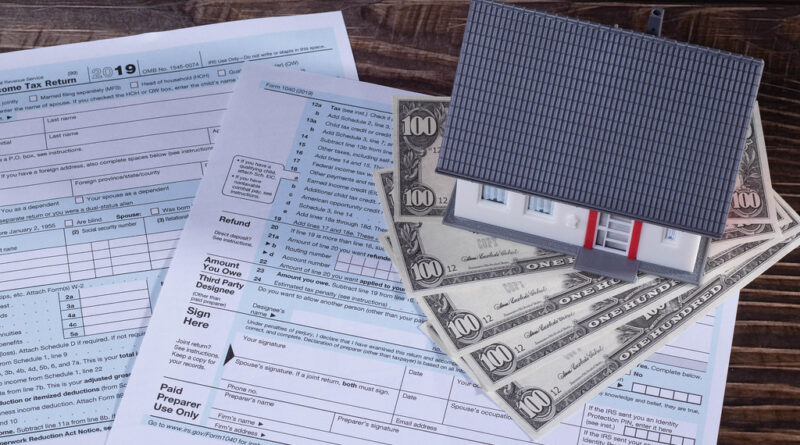How to Protect Your Real Estate Assets: A Beginner’s Guide to Privacy and Security
Investing in real estate can be an exciting and rewarding venture. Whether you’re a seasoned investor or just starting, real estate investing can provide you with long-term financial stability and wealth. However, with great rewards come great risks, and protecting your assets is crucial to your success as a real estate investor.
In today’s digital age, cyber criminals are becoming increasingly sophisticated in their methods, and real estate investors are often seen as prime targets due to the large amounts of money involved in these transactions. Neglecting to protect your personal and client information can leave you vulnerable to data breaches, identity theft, and even theft of your property.
Protecting privacy and security may seem daunting, but it doesn’t have to be. In this beginner’s guide, we’ll walk you through the basics of protecting your real estate assets and provide you with practical steps you can take to safeguard your information and property. Whether you’re a first-time investor or a seasoned pro, these steps can help you build a reputation as a trustworthy and reliable investor and maximize the value of your real estate investments.
Why Protecting Privacy and Security is Important for Real Estate Investors?
Real estate investing is a highly lucrative business, and it’s no surprise that it attracts cyber criminals looking to steal sensitive information or assets. If your personal information, such as your social security number or financial details, fall into the wrong hands, it could lead to identity theft, fraud, or even theft of your property. Furthermore, the sensitive information of your clients could also be at risk, putting their trust and confidence in you at stake. A data breach could ruin your reputation as an investor and lead to significant financial losses.
As an investor, your reputation is everything, and protecting your assets is crucial to your success. A single data breach could cause significant damage to your business and put you out of business for good. Therefore, it’s essential to take steps to protect your real estate assets, whether you’re a first-time investor or a seasoned pro.
The Basics: What is Privacy and Security?
Privacy and security are two concepts that are closely related when it comes to protecting your real estate assets. Privacy refers to the control of your personal information and how it is used. Security refers to the measures taken to protect your information and assets from unauthorized access or theft. Both are equally important in protecting your real estate assets, and neglecting either of these can leave you vulnerable to a data breach or theft.
Steps to Protect Your Real Estate Assets
Step 1: Use Strong Passwords
Using strong passwords is one of the most important steps you can take to protect your real estate assets. A strong password is the first line of defense against hackers and cyber criminals. It’s essential to use unique passwords for each of your accounts and make sure they are at least eight characters long and include a mix of uppercase and lowercase letters, numbers, and symbols. Avoid using easily guessable passwords like “1234” or “password”.
Consider using a password manager to store and manage your passwords securely. A password manager is a tool that generates and stores passwords for you, so you don’t have to remember them. Password managers also make it easy to use unique and complex passwords for each of your accounts, which can significantly reduce the risk of a data breach.
Step 2: Secure Your Devices
Your devices are a critical component of your real estate investing business, and securing them is essential to protecting your assets. Start by installing anti-virus and anti-malware software on all of your devices. These programs can help detect and remove malicious software that can compromise your security.
Keep your operating system and software up to date with the latest security patches and updates. These updates often include important security fixes that can prevent cybercriminals from exploiting vulnerabilities in your system.
Avoid using public Wi-Fi networks to access sensitive information, as they can be easily hacked. Instead, consider using a virtual private network (VPN) to encrypt your internet connection and protect your privacy. A VPN creates a secure, encrypted connection between your device and the internet, making it more difficult for hackers to intercept your data.
Step 3: Use Encryption
Encryption is a powerful tool that can protect your sensitive data from prying eyes. Encryption is the process of converting your data into a secret code that can only be deciphered by someone who has the encryption key. Use encryption software to encrypt your emails, documents, and other sensitive information. This makes it more difficult for hackers to access your information even if they manage to gain access to your device or network.
There are many encryption software options available, including popular tools like BitLocker (Windows) and FileVault (Mac). Make sure to choose a reputable encryption tool and follow the instructions carefully to ensure that your data is encrypted correctly.
Step 4: Protect Your Physical Assets
Physical security is just as important as digital security when it comes to protecting your real estate assets. Start by installing security systems, such as alarms and cameras, in your properties. This can deter thieves and provide evidence in the event of a break-in or theft.
Keep important documents, such as property deeds and mortgage documents, in a secure location like a safe or a safety deposit box. Make sure to keep backup copies of these documents in a separate location, such as a cloud storage service or an external hard drive.
Step 5: Keep Your Clients’ Information Safe
As a real estate investor, you may be entrusted with your clients’ sensitive information, such as their financial details. Ensure that you protect their privacy and keep their information safe by following the steps outlined above, and by only sharing their information with trusted parties who have a need to know.
Make sure to educate your clients about the steps you are taking to protect their information, as this can help build trust and confidence in your business. Consider using secure online tools like DocuSign to manage documents and transactions securely.
Best Practices for Protecting Privacy and Security
- Regularly monitor your credit reports for any suspicious activity. This can help you detect potential identity theft early and take action to protect your assets.
- Use two-factor authentication to add an extra layer of security to your accounts. Two-factor authentication requires you to provide two forms of identification, such as a password and a fingerprint or a code sent to your phone.
- Be cautious of unsolicited emails or phone calls asking for personal or financial information. These could be phishing scams designed to trick you into giving away sensitive information.
- Keep your software and operating systems up to date with the latest security patches and updates. These updates often include important security fixes that can prevent cyber criminals from exploiting vulnerabilities in your system.
- Be wary of public Wi-Fi networks and only use them when necessary. Instead, consider using a virtual private network (VPN) to encrypt your internet connection and protect your privacy.
- Always log out of your accounts when you’re finished using them. This can help prevent unauthorized access to your accounts if someone gains access to your device.
- Regularly back up your important data to an external hard drive or cloud storage service. This can help protect your data in the event of a data breach or hardware failure.

Examples of Protecting Privacy and Security in Real Estate
Here are a few examples of how protecting privacy and security can help you maximize the value of your real estate investments:
1. Protecting Your Investment Property:
- If you own a rental property, protecting your tenants’ personal information is critical. By following the steps outlined above, you can safeguard their privacy and protect your investment from potential identity theft or fraud. You can also use encryption software to protect sensitive documents related to the property, such as lease agreements and tenant applications.
2. Protecting Your Financial Information:
- If you’re a borrower or lender in the real estate market, protecting your financial information is crucial. By using encryption software and secure passwords, you can prevent unauthorized access to your financial data and protect yourself from potential fraud. You can also monitor your credit reports regularly to detect any suspicious activity and take action to prevent identity theft.
3. Protecting Your Clients’ Trust:
- As a real estate investor, your clients’ trust is essential to your success. By taking steps to protect their privacy and secure their personal information, you can build a reputation as a trustworthy and reliable investor. You can also use secure online tools like DocuSign to manage documents and transactions securely, which can help build confidence and trust with your clients.
Final Words
Protecting your real estate assets is crucial to your success as a real estate investor, borrower or lender. By following the steps outlined in this guide, you can safeguard your personal and client information and protect your real estate investments from potential threats. Remember to use strong passwords, secure your devices, use encryption, protect your physical assets, and keep your clients’ information safe.
Don’t forget to follow best practices for protecting privacy and security, such as regularly monitoring your credit reports and being cautious of unsolicited emails or phone calls. With these steps, you can build a reputation as a trustworthy and reliable investor, and maximize the value of your real estate investments.
Protect Your Real Estate Assets Today
By following the steps outlined in this guide, you can protect your real estate assets and safeguard your personal and client information from potential threats. Remember to use strong passwords, secure your devices, use encryption, protect your physical assets, and keep your clients’ information safe. Don’t forget to follow best practices for protecting privacy and security, such as regularly monitoring your credit reports and being cautious of unsolicited emails or phone calls. Protecting your real estate assets is essential to your success as an investor, borrower, or lender. What steps will you take to protect your investments today?
